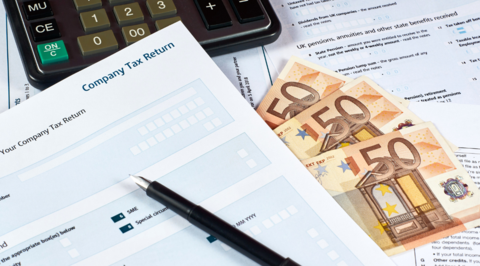Tax Governance - Do you Have the Right Processes?

Closer tax scrutiny on businesses?
Organisations are expected to come under intense scrutiny from government, regulatory and other significant stakeholders. This increased scrutiny stems from an increased focus on tax base erosion which has been further exacerbated by the extraordinary spending by governments as a result of COVID-19. This has been reflected in a dramatic increase in legal and regulatory compliance obligations, coupled with expanding reporting obligations across all business areas, from compliance to operations and tax.
To operate effectively in this environment, organisations must rapidly develop and leverage a coordinated strategy for responding to each new requirement while continuing to excel at their day-to-day operations. A strong, adaptable regulatory response mechanism is critical in minimising the potential impacts on both clients and the organisation while balancing risk at the same time.
A challenging corporate environment and external factors led by COVID-19
The changing working environment accelerated by the pandemic is distorting companies’ internal information flows and exchanges. As remote working arrangements may become a permanent work approach, companies may have to rearrange their internal communication channels to ensure that tax relevant information are appropriately considered for purposes of tax reporting, to avoid “garbage-in, garbage out” situations.
Fundamental changes in internal corporate systems are another challenge. Finance Transformation projects which are often accompanied by complex Information Technology (IT) implementations, may have a significant impact on decades-old tax compliance life cycle.
How can Tax Governance help?
Against the backdrop of a changing environment, it is increasingly important for organisations to put in place a robust and effective Tax Governance Policy Framework.
Such a framework incorporates the governance of specific projects and transactions as well as day-to-day tax operations, enabling compliance with both new obligations and ongoing requirements. A strong framework also leverages the finance and the tax functions as a true strategic business partner, who actively involved in the identification and implementation of requirements and regularly collaborating with compliance teams and affected lines of business across the organisation.
As a result, businesses can take a proactive approach to better manage tax declarations and tax risks associated with incorrect data. With an improved level of data accuracy, the taxpayer’s standing with all stakeholders, in particular the tax authorities can be increased, in addition to reducing compliance costs, avoiding tax penalties and strengthening the tax controversy management.
A Tax Governance Policy Framework (TGP) aligns the strategy and objectives of the finance and the tax functions with those of the overall organisation and helps the tax function effectively identify and deliver value while continuing to comply with underlying legislative and regulatory requirements.
The TGP must be formally documented and approved “at the top of the house” and it must also be communicated to all relevant stakeholders to ensure that “bottom-up” activities are effectively aligned.
A Tax Risk Management and Control framework (TRMC) supports the finance or tax function in managing tax risks, identifying tax opportunities and integrating governance policies, internal controls and tax processes to achieve strong tax risk management that aligns with the established risk policy. A TRMC should include the following:
- Identification and documentation of key internal controls in place to monitor, manage and mitigate risks arising from financial reporting, tax compliance and other tax activities;
- Periodic assessment of tax risks facing the organisation, including internal and external environmental matters; and
- Identification of processes and tools needed to effectively align tax function resources and activities with the organisation’s overall aims and objectives.
There is no “one-size-fits-all” tax governance structure applicable and appropriate for all projects across organisations. Each alternative should be reviewed and considered on a project-by-project, issue-by-issue, and/ or organisation-by-organisation basis to determine which is most appropriate.
Whether the solution is based on process, business or geography, it’s vital that certain key components are included in the final governing structure. These components include the project sponsor, adequate resources, a project management team, and frequent and transparent communication.
Malaysia tax aspects
In Malaysia, there is currently no statutory requirements for businesses to have a formal TGP in place. However, the focus on this topic is gaining momentum. The Malaysian Institute of Accountants (MIA) issued a Tax Governance Guide in November 2021 as a reference for large companies in reporting the management of tax matters in their annual reports. The Inland Revenue Board (IRB) has also issued the Tax Corporate Governance Framework (TCGF) and Tax Corporate Governance Guideline (TCGG) on 11 April 2022, with full implementation expected to take effect in 2024. A pilot project covering selected companies is expected to take place in June 2022.
The TCGF covers a wide spectrum of tax matters including income tax, petroleum tax, transfer pricing, withholding tax, Labuan tax, incentives and rulings. Some benefits for TCGF participants include reduced scrutiny on tax compliance, faster tax refunds and having a dedicated IRB officer as a single point of contact between the IRB and taxpayer.
Deloitte’s “Global Process Approach” on tax processes
Companies should commence their Tax Governance journey by verifying their understanding of their tax processes by means of a process walk-through.
Deloitte’s “Global Process Approach” for tax processes may be the right approach for such an initial analysis, as it has been proven effective and does not require a separate documentation tool.
The “Global Process Approach” refers to defined process steps, where standardised questions are assigned to each step. The as-is process is therefore matched with the standard process, so that potential gaps can be identified immediately.
Deloitte’s “Global Process Approach” is being used worldwide and areas of application mostly include Record-to-Report processes as tax declaration processes for all kinds of taxes. However, the approach can also be used for Purchase-to-Pay and Order-to-Cash processes and the same goes for indirect taxes or Transfer Pricing.
For more information, please refer here
Source: Deloitte Malaysia


